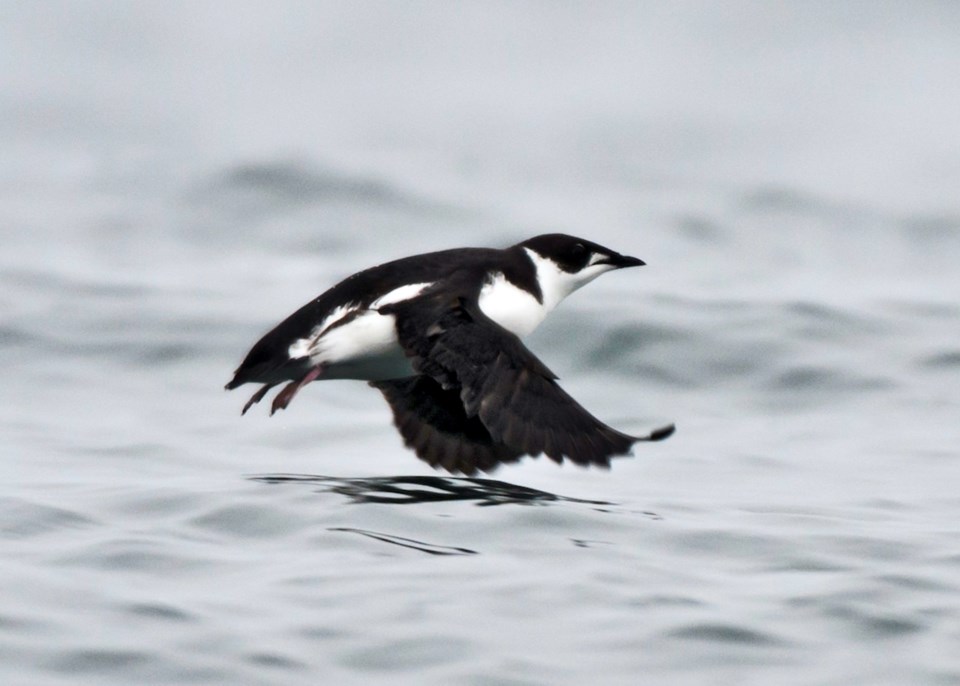Two environmental groups are suing the Canadian government over claims it failed in its duty to protect the habitat of over two dozen migratory bird species, including the marbled murrelet, a seabird that nests in the coastal old-growth forests of British Columbia.
Under the Species at Risk Act (SARA), the Minister of the Environment and Climate Change is required to recommend orders to protect critical migratory bird habitats outside of federal lands if there are no existing laws on the books.
On March 25, 2022, Minister Steven Guilbeault appeared to fulfil that obligation when he issued a protection order for the habitat of critically endangered migratory birds listed under SARA.
In reality, Guilbeault only considered “whether the nests of at-risk migratory birds are protected by federal laws,” claims the Sierra Club BC and Wilderness Committee in a judicial review application filed this week.
That narrow interpretation of SARA is a dangerous move for birds like the threatened marbled murrelet, along with 24 other at-risk migratory bird species across the country, claims the court document.
“Without protection of critical nesting habitat in old-growth forests in coastal British Columbia, marbled murrelet populations have continued to decline — primarily as a result of continued logging in their nesting habitat,” notes the judicial review application.
Because the Migratory Birds Convention Act and SARA already provide protection to nests, Guilbeault “has made it clear that he will not take additional steps under [SARA] to protect any migratory bird critical habitat on non-federal lands,” states the document.
The two environmental groups are applying to have the minister’s decision either quashed or set aside, and in the case of the marbled murrelet, declared unlawful.
The court action represents an escalation of the two groups' efforts to protect critical marbled murrelet habitat — for the past two years, they have been sending petitions and letters calling on the federal and B.C. governments to take action.
Attempts to save the marbled murrelet took off in 2014 with the release of a recovery strategy meant to boost nesting habitat for the species.
The species is hard to track, especially when nesting, as the marbled murrelet rears its young high off the ground in the mossy branches of old-growth trees.
First declared threatened in 1990, the small black and white seabird can be found along 4,000 kilometres of coastline, stretching from California to Alaska. Most of the population is found in Alaska and B.C.
As few as 263,000 birds are left, including at least 50,000 in B.C., where the species has lost an estimated 20 per cent of its habitat over the past three generations, according to the Committee on the Status of Endangered Wildlife in Canada (COSEWIC).
The species breeds multiple times throughout its life, and low reproductive rates mean keeping paired birds alive for a long time is key to the health of the species.
The marbled murrelet is threatened by oil contamination, entanglement in gill nets when foraging at sea, and proposed shipping routes through its range. That’s all expected to lead to a more than 30 per cent projected decline in its population over the next three generations.
Habitat loss, however, remains the largest threat, says COSEWIC.
Since 2016, nesting habitat for the bird has declined in the eastern reaches of Vancouver Island, “primarily because of industrial logging,” claims the court document.
On the west and north ends of the island, the 8,500 hectares of nesting habitat remaining as of 2020 are projected to be increasingly at risk due to logging over the next five to eight years.
Lawyers for the two environmental groups have requested the case be heard in Vancouver, B.C.
None of the claims have been proven or tested in court.



